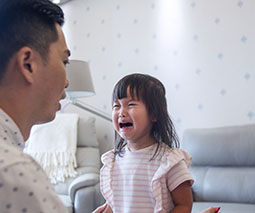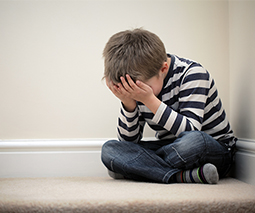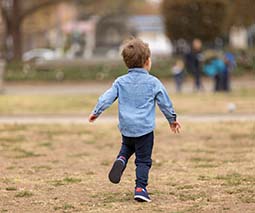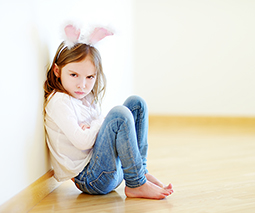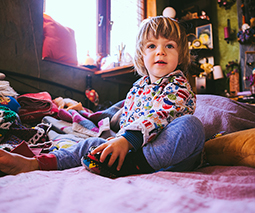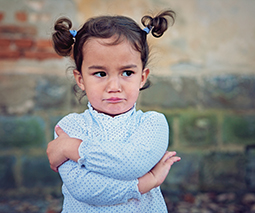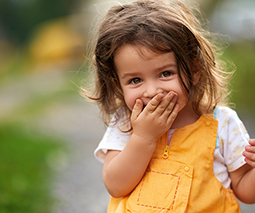Why do toddlers love playing with mirrors?
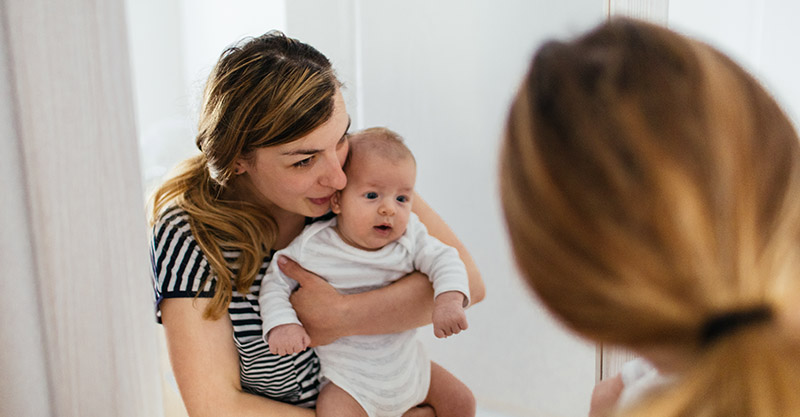
If your little one is borderline obsessed with the reflection in the mirror, there are a bunch of interesting reasons to encourage it!
Why do toddlers love mirrors?
Psychologists tried to get to the bottom of this phenomenon back in the 70’s with their now famous Mirror Test.
The researchers looked at a group of children aged from 6 to 24 months, drawing a spot of lipstick on their noses and then popping them in front of a mirror. Depending on their age, the babies responded to the reflection in the mirror in different ways:
6 to 12 months – the babies thought the image in the mirror was another baby, and were keen to make friends.
13 to 24 months – babies grew more unsure about the babies in the mirror, and it was not clear if they could identify the reflection.
20 to 24 months – by this age, babies recognise that the baby in the mirror is themselves. While looking in the mirror, they touch the dot of lipstick on their own nose instead of touching the mirror, making the connection between reflection and self.
Read more about toddlers:
- Toilet training vs toilet timing: What’s the difference?
- 7 negotiation strategies to use with your toddler
- Why do kids love dinosaurs so much?
Reassuring reflection
As babies begin to make sense of their surroundings, this connection between the baby in the mirror and the self is the start of an important relationship. These early steps toward understanding their environment and themselves – in a pretty unpredictable world – are reassuring ones for babies.
Not only do babies build on their own sense of identity as they take in their reflection, but the mirror can also help them better understand their body, track objects, improve focus, observe their surroundings and even help with language development as they chat away and watch the movement of their own mouth.
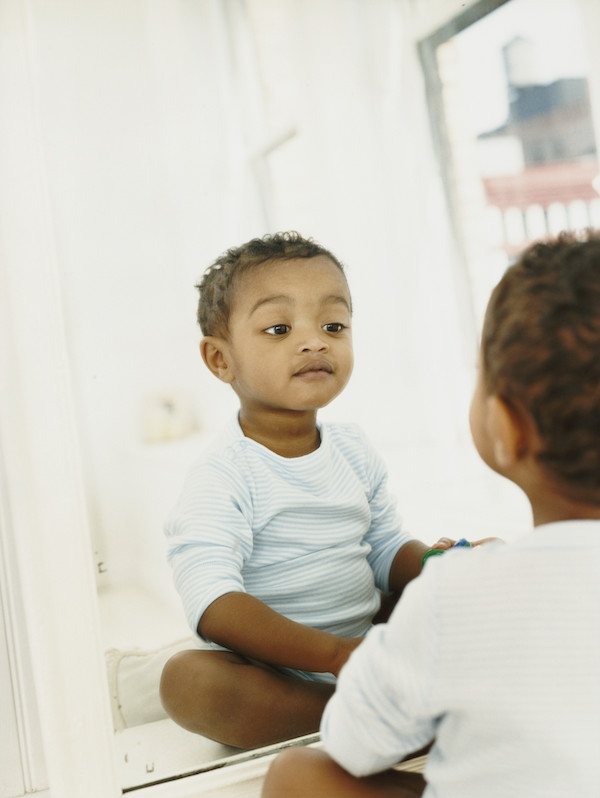
Babies love babies
Babies may also love mirrors because they are primed from birth to interact with other babies – even if that baby is himself!
They simply can’t get enough of the sounds other babies make. When they hear their own voice and see a baby reflection, they can’t help but be drawn to the ‘other’ littlie.
Linda Polka is a professor at McGill University, and has been studying infant behaviour and speech development. She confirms there’s nothing babies love more than … other babies!
“Even mums’ best imitations of their vowel-like vocalizations – identical in pitch – can’t compete with infants’ preference for their own acoustic vocal properties, uniquely formed by the resonance of their very small bodies,” Linda says.
So if the baby in your life is mirror-obsessed, know that they’re doing a lot of important work as they peep at themselves.
The more mirror, the better!
